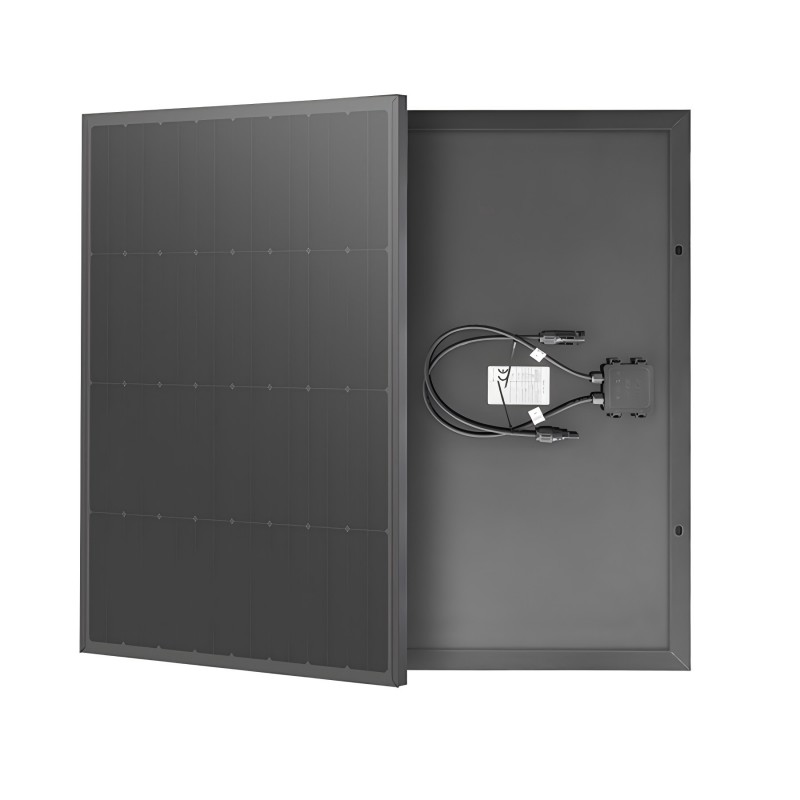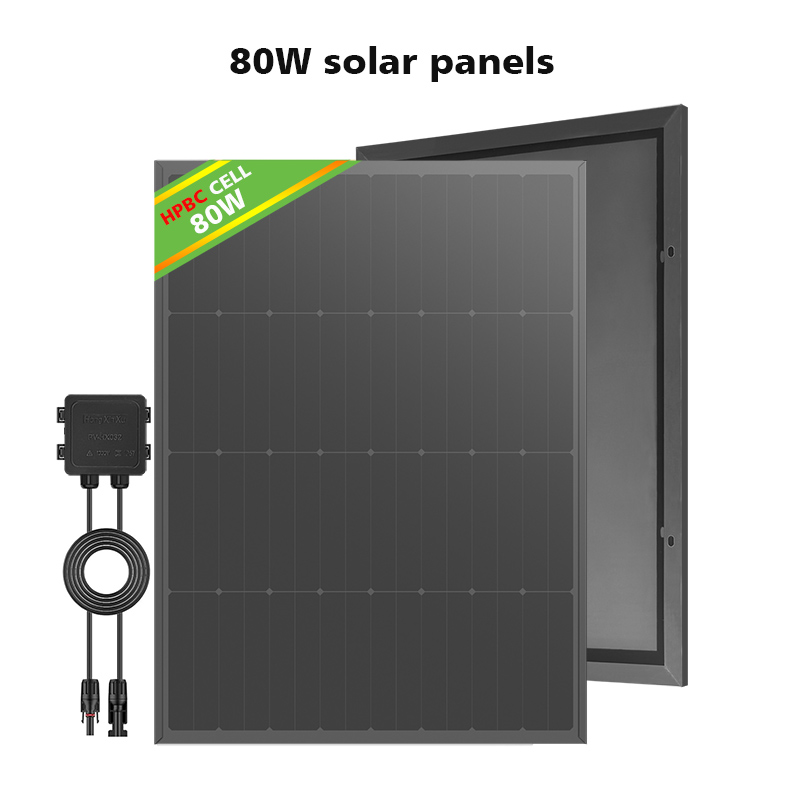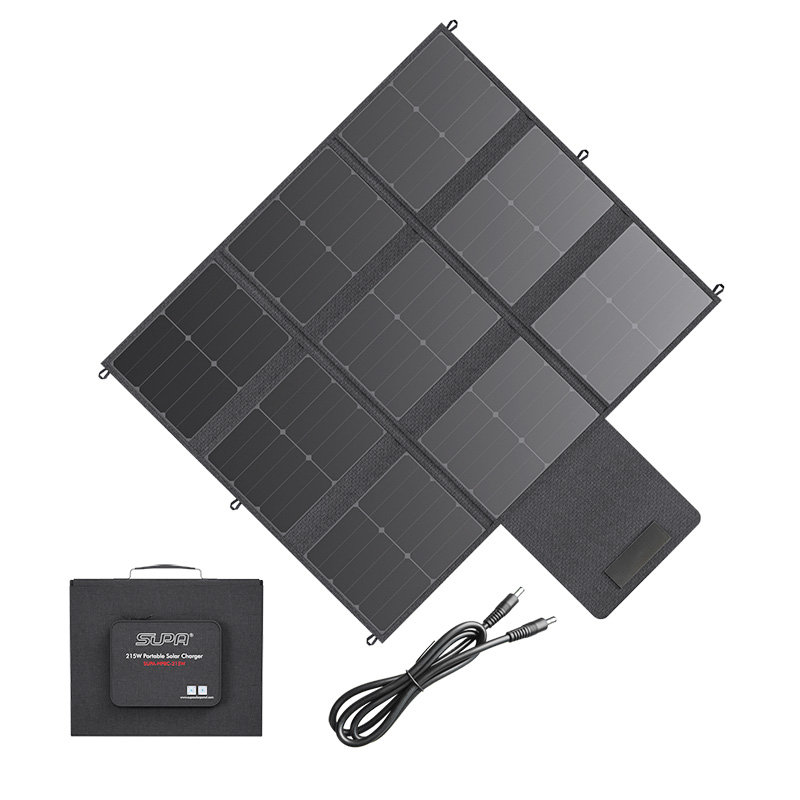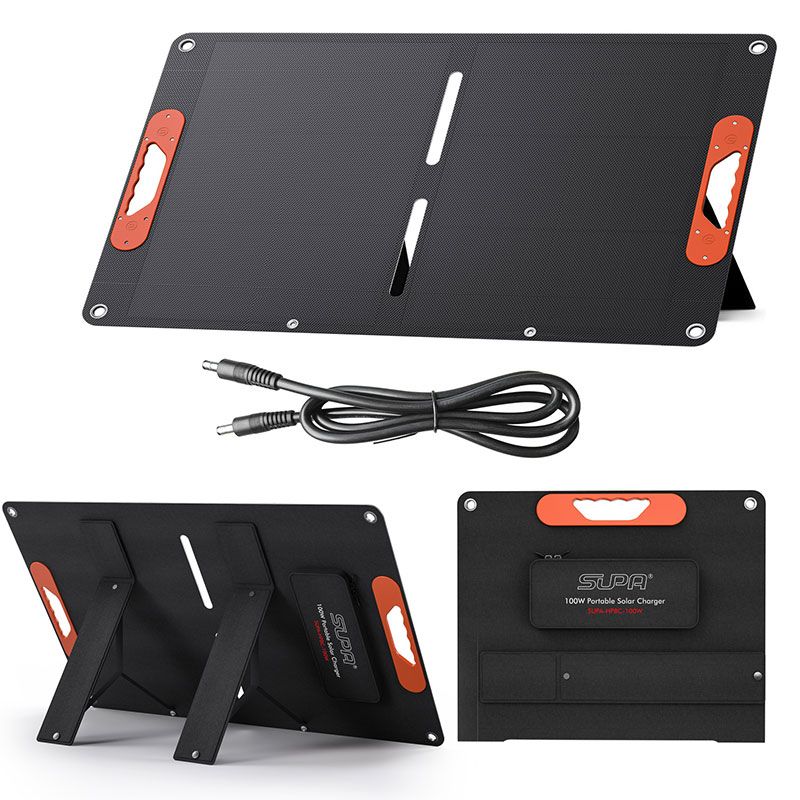Company News
When investing in a foldable solar panel for outdoor adventures, emergency kits, or mobile workstations, one of the first questions buyers ask is, "Will it still work on cloudy days?" While sunny conditions are ideal, portable solar panels have come a long way in terms of efficiency, and many are now designed to deliver consistent performance even under less-than-ideal weather conditions.
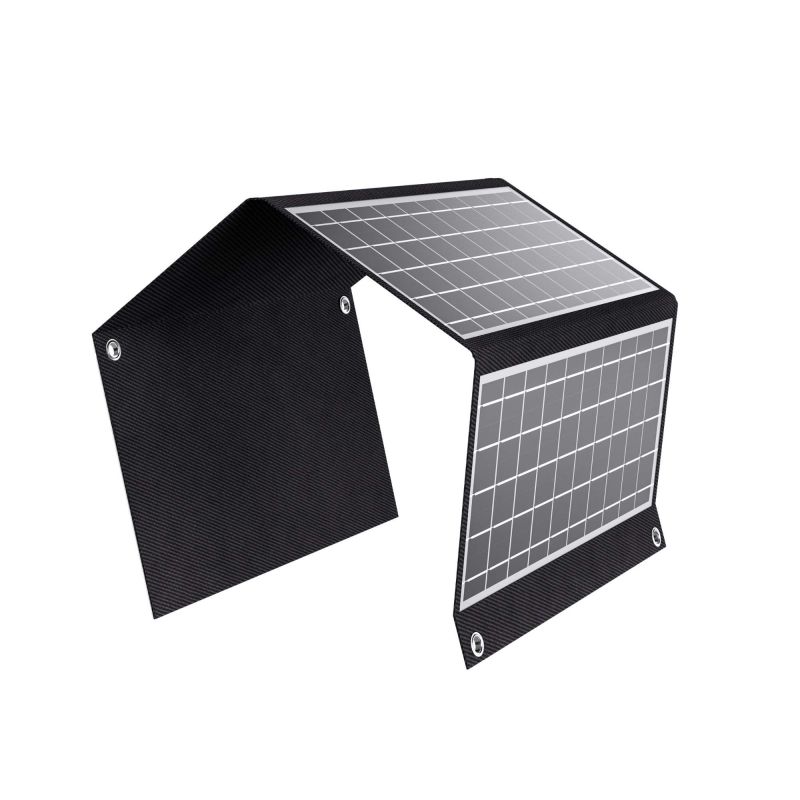
Understanding Solar Panel Efficiency in Low-Light Conditions
Solar panel efficiency refers to the amount of sunlight converted into usable electricity. Under full sun (standard test conditions), a 100w foldable solar panel may produce close to its rated capacity. But when overcast skies reduce direct sunlight, panel efficiency typically drops to 10%–25% of peak performance, depending on the quality of the panel and light sensitivity of the photovoltaic cells used.
This does not mean foldable solar panels become useless in cloudy weather — instead, their performance is significantly influenced by:
Cell Type: Monocrystalline cells, often used in high-end portable solar panels, are more efficient in low light compared to polycrystalline alternatives.
Panel Angle & Orientation: Adjusting the panel’s position toward diffused light can improve output by 10–15%.
Ambient Temperature: Cooler temperatures actually help solar cells operate more efficiently, which can slightly offset reduced irradiance during cloudy days.
How Do Foldable Solar Panels Compare to Rigid Ones in Overcast Conditions?
While rigid panels typically have larger surface areas and higher overall output potential, folding solar panels for outdoor use offer unique advantages in mobile scenarios. Most premium-grade foldable models are equipped with high-efficiency monocrystalline cells and ETFE-coated surfaces that perform well even when direct sunlight is limited. In side-by-side tests, a 100w folding solar panel may yield around 20–30 watts on a heavily overcast day — enough to trickle charge a power station or keep devices topped off. For backpackers, RV owners, or field engineers, this consistent trickle of power can be a game-changer.
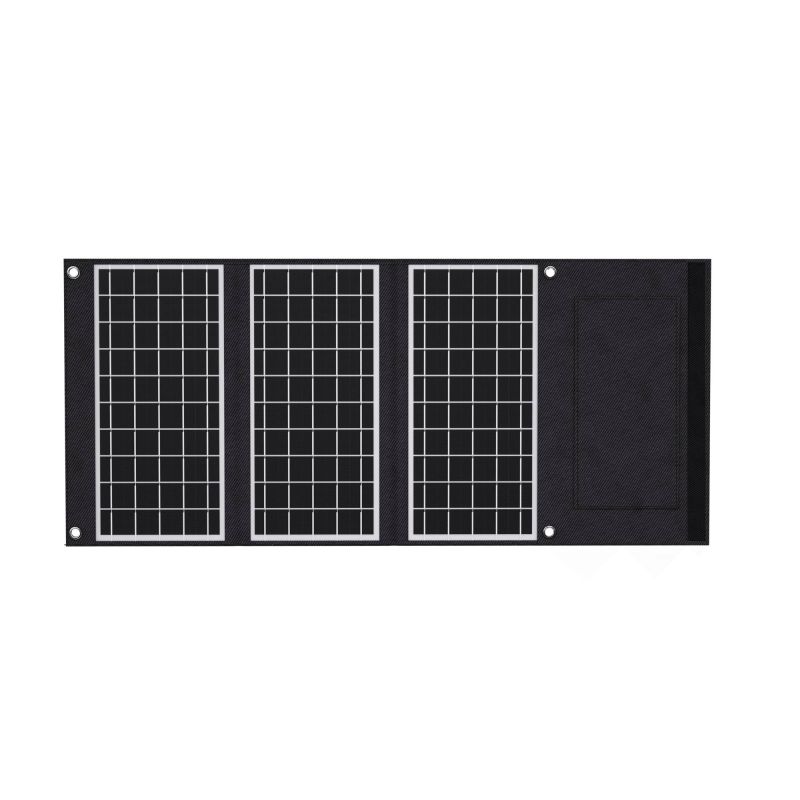
Use Cases Where Cloudy Weather Still Supports Charging
Despite reduced output, there are practical applications where portable solar energy systems continue to provide real value, such as:
Charging a solar generator slowly throughout the day
Keeping communication devices (phones, radios, GPS) topped up
Powering LED lights or low-voltage fans
Recharging camera or drone batteries intermittently
When paired with a portable power station, even small amounts of energy harvested throughout a cloudy day can accumulate enough for moderate use.
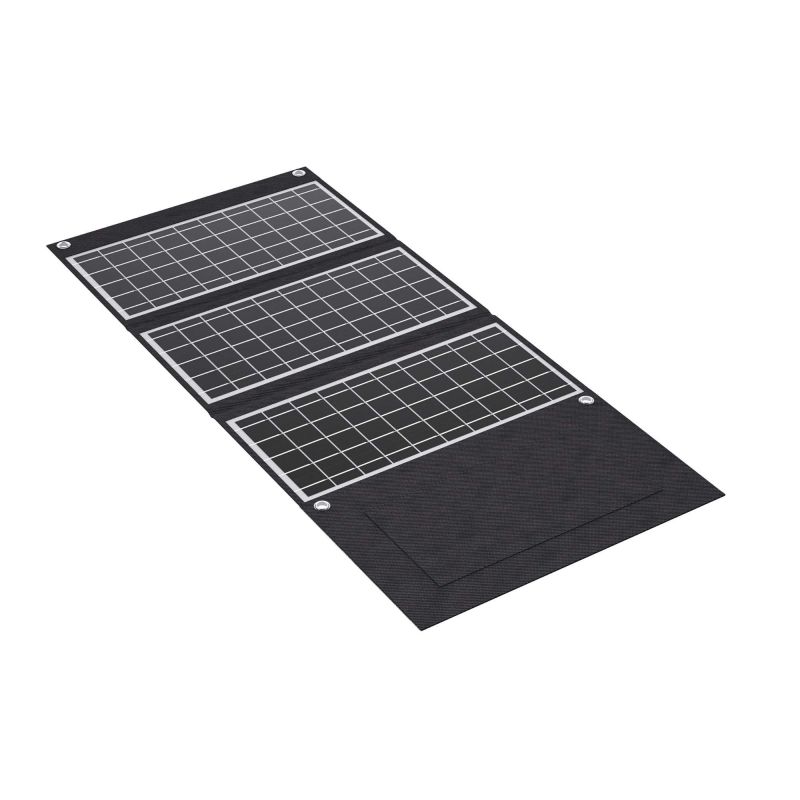
Tips to Maximize Solar Charging on Cloudy Days
To get the most from your foldable solar panel in cloudy weather, consider the following tips:
Use a solar panel with high conversion efficiency (≥22%)
Keep the panel clean and angled toward the brightest part of the sky
Use MPPT controllers – they outperform PWM in low-light conditions
Avoid shadows – even partial shading can greatly reduce output
Store power efficiently by pairing with a reliable battery or generator
By combining smart positioning and efficient energy storage, even a cloudy day can support light off-grid needs.
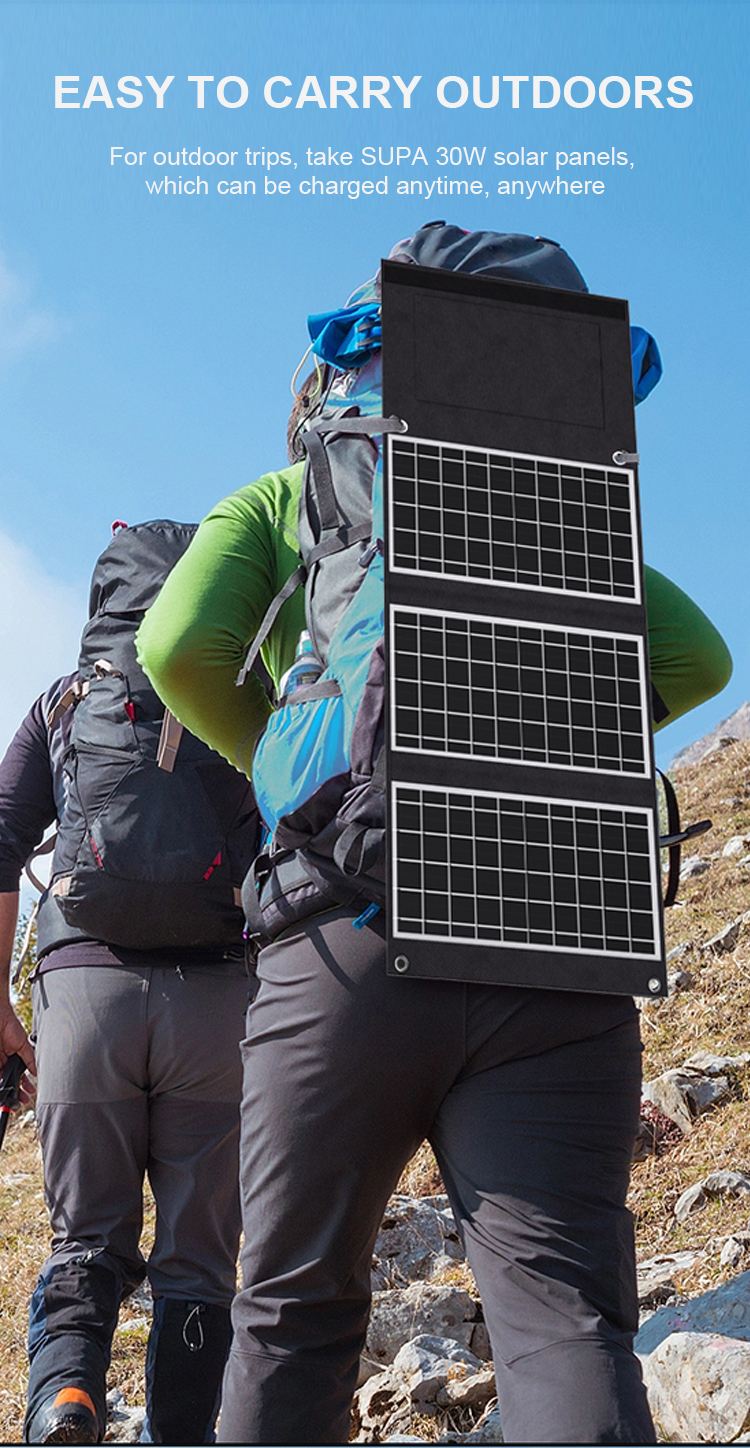
Choosing the Right Foldable Solar Panel for Variable Weather
When selecting a solar panel for cloudy days, look beyond wattage and consider:
Cell type (monocrystalline preferred)
Waterproofing and durability for unpredictable weather
Weight and portability vs. power requirements
Compatibility with solar generators or 12V batteries
Brands like Supasolar have introduced models that balance portability with robust low-light performance. A 100w foldable solar panel with USB and DC outputs, reinforced fabric, and adjustable stands offers both flexibility and resilience in real-world conditions.
Conclusion: Cloudy Doesn’t Mean Powerless
In cloudy weather, foldable solar panels are still valuable energy tools — just with tempered expectations. Though peak performance drops, modern portable solar panels still harness ambient light and diffuse radiation effectively. For users needing flexible, lightweight energy solutions in diverse environments, a high-quality folding solar panel for outdoor use remains a practical and sustainable choice. When planning your off-grid adventures or mobile work setups, don’t let a few clouds cloud your judgment. With the right gear and a bit of strategic placement, solar power is still very much in play.

